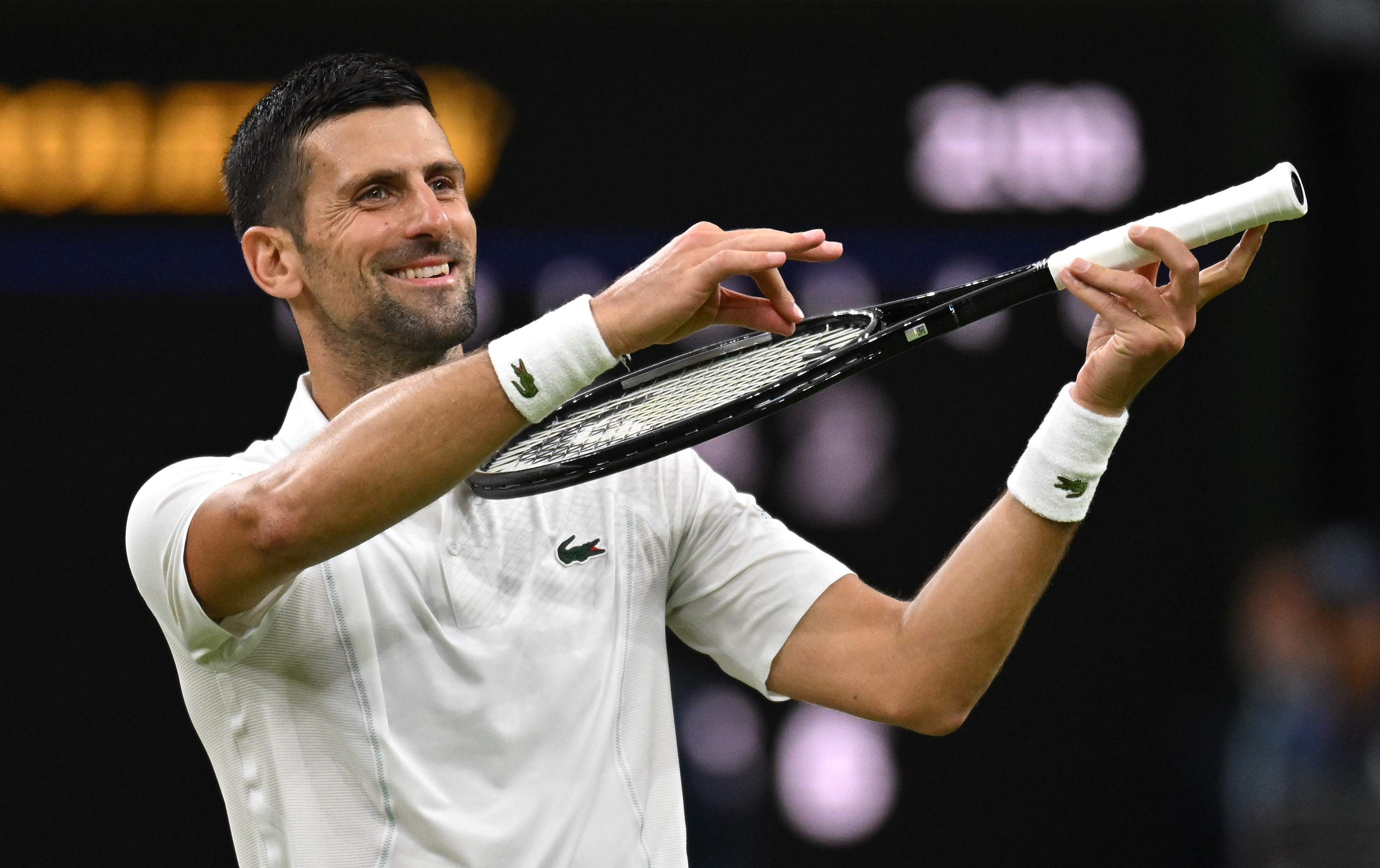


Amid the sliding backhands and skidding slice serves, Novak Djokovic has also mastered some sophisticated psychological techniques on the tennis court. After the 2019 Wimbledon final, in which he saved two match points to defeat permanent crowd-favorite Roger Federer in five sets, Djokovic claimed he could turn opposing crowd noise into a motivational signal. “I like to transmutate [sic] it in a way,” he said. “When the crowd is chanting ‘Roger,’ I hear ‘Novak.’ It sounds silly, but it is like that.”
That was a crowd almost unilaterally opposed to Djokovic’s own ambitions for the title, but throughout his career, he has proven expert at identifying—or, where necessary, inventing—an outside antagonist to use as motivation. He used a related technique in Monday’s fourth-round match against No. 15 seed Holger Rune, which held some promise because of Rune’s past upsets of Djokovic, but instead plopped out as a total dud. Djokovic heard the crowd’s calls of “Rune,” assumed those were boos were aimed at him, then produced his best tennis of the year. After routing Rune 6-3, 6-4, 6-2, he accused the crowd of “disrespect.” It’s been a listless, low-energy season for the greatest men’s tennis player ever, who entered the tournament fresh off a meniscus surgery, but now he’s tapping into the emotions that make him most powerful.
Throughout the match, supporters of Rune bellowed their man’s name in a low, drawn-out fashion: “Ruuuuuuune.” It could be confused for booing if you were unfamiliar, although Djokovic had heard it before. When the seven-time Wimbledon champ was interviewed on court after his win, he thanked his supporters and addressed the supposed haters.
“And to all those people that have chosen to disrespect a player—in this case, me—have a goooooooooood night,” Djokovic said, drawing out the word “good” as they had the name “Rune.” “Gooooooood night, goooooood night. Very gooooood night.” The interviewer gamely pushed back against the paranoia, suggesting that the boos were just Rune’s name, but Djokovic insisted he could see through the ruuuuuuuuuse.
“They were, they were, they were [disrespecting me],” he said. “I don’t accept it. No, no, no. I know they were cheering for Rune, but that is an excuse to also boo. Listen, I’ve been on the tour for more than 20 years, so trust me, I know all the tricks.” He continued as the crowd made a muddled noise. “I’ve played in much more hostile environments, trust me. You guys can’t touch me.”
Djokovic should have been quicker to figure out the crowd noise, since he heard these same chants three years ago when he defeated an 18-year-old Rune in the first round of the 2021 U.S. Open. “I didn’t know what they were chanting obviously, I thought they were booing. I don’t know. It was a not ideal atmosphere for me,” Djokovic said at the time, as he was informed by a reporter that those boos were support for Rune. Clearly it was productive for Djokovic to forget, because it allowed him to conjure up some fresh motivation. “He’s played so many matches since it happened last time, he probably didn’t remember,” Rune said after this latest defeat.
A newcomer might find these admonishments for the crowd a little unseemly, coming from a 37-year-old seven-time Wimbledon champion who has nothing left to prove about his historic supremacy in men’s tennis. But Djokovic summons some of his best ball when playing from a place of spite. Tennis culture would’ve flourished if Djokovic had stuck to his heel origins, instead of muddling through his mid-career with bosom-throwing celebrations, a peace-and-love quack in his box, and attempts at broad appeal. He’s much more natural hanging up phones and playing violins. Ideally he’d wind down his career in the mode that best suits him: making the cheers his jeers on the tennis court of success.